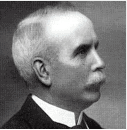When I was a schoolboy with fantasies about being a successful businessman, I went to a lecture given by one of the most successful entrepreneurs of the time. The white-haired gentleman who gave the lecture was the complete antithesis of what I had expected a successful businessman to look like. He was quiet, courteous, respectful and reflective. He proceeded to spell out the qualities he looked for in young people aspiring to make a success in the rough and tumble of the City. He emphasized over and over again that a lot of talents were required but they were as naught without integrity. It was integrity which formed the rock on which western business was founded. Integrity? I had to go and look the word up. Various awful experiences have happened to me in business, the Business of Software, that have convinced me that this seeming platitude is of overwhelming importance. Being utterly straightforward in all ones business dealings is such an embarrassingly boring piece of advice that one hesitates to give it. The problem is that everyone has to do it. In fact, the industrial revolution of the Victorian era couldn’t have happened without the ethical constraints of the close-knit trading community based on mutual trust, with the catchword ‘My word is my bond’. It is an unnatural state for any human group barring a successful army. You only have to study the way business was conducted in London, Manchester or Bristol in the 1860s, without any information technology to see that there was a magical ingredient. Despite what you might have heard, Chicago, Paris, Tokyo, and New York all prospered under a similar cartel of traders who chose to be painstakingly honest with each other and ruthless with anyone who broke the code. No amount of regulation, clever IT, or policing can substitute for this in today’s business community, as recent events have proved. The current recession is based not on a breakdown of the monetary system, but of the essential honesty of the management of the banking system, and of the businesses that depend on it. Some time ago, when I had an office in the City of London, there was an old firm of stockbrokers downstairs. The three partners were well past retirement age, in a dusty, poorly-lit office; all mahogany bureaus, typewriters and manila files. As they made good money they carried on, cheerfully trading. We’d pop down to borrow tea-bags and get tips on stocks and shares. When they finally closed the business we bade them goodbye in the middle of a suddenly-bare office, clutching classes of sherry. They were adamant that destruction of the ‘old boy’s network’ of brokers and traders, the deregulation of the stock exchange and banking would lead to a heady boom in trading, leading eventually to a catastrophic collapse. They saw the introduction of information Technology as being a mixed blessing as it made dishonesty easier to conceal, and made it easier to avoid looking your victim of fraudulent dealing in the eye. We nodded quietly at the time, but laughed afterwards at their old-fashioned caution. What a silly idea, the collapse of confidence in the banking and trading system, we thought.
Spotted an error?
If you've seen something in this article that needs changing, whether it's a technical inaccuracy or a typo, please let us know by reaching out to the team.





Load comments